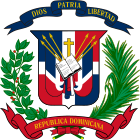영미인
Anglo-Americans영미인들은 영미권의 영어를 사용하는 거주민이다. 그것은 일반적으로 영어를 모국어로 사용하는 아메리카 대륙의 국가들과 인종 집단을 말하며 영어를 모국어로 사용하는 사람들의 대다수를 차지한다. 이러한 용법은 멕시코-미국 전쟁 당시 미국 서부에 거주하는 영어권 사람들과 스페인어를 사용하는 사람들의 역사에 대한 논의에서 유래되었다.[dubious ]
사용법
이 용어는 모호하고 여러 가지 다른 방법으로 사용된다. 주로 영국계 조상의 사람들을 지칭하는 데 사용되지만, (잉글리쉬, 영국식, 앵글로폰, 앵글로포닉과 같은 용어와 함께) 서북유럽계 미국인과 같은 영국계 또는 서북유럽계 조상의 모든 사람들을 가리키는 데에도 사용된다.[7] 그것은 영어를 모국어로 사용하는 서북유럽 출신 민족과 그들의 후손들을 포함시킬 수 있는데, 이는 히스패닉이나 "라티노"가 어떤 민족의 사람들을 지칭하는 것과 마찬가지로 이전의 인종이나 민족적 배경에 관계없이 신대륙에서 영어를 사용하는 모든 사람들을 포함한다.[8][9] 따라서 예를 들어, 미국이나 캐나다 문화를 채택한 중국계 혈통의 사람은 영어를 사용하는 "앙글로 아메리칸", "앙글릭", "앙글로폰" 또는 "앙글로포닉" 자녀(스페인어를 사용하는 중국계 혈통들이 "히스패닉"이 될 수 있는 히스패닉 아메리카에 살고 있는 것과 대조적으로)를 갖게 될 것이다. 따라서, 영국계 미국 사람, Anglic-American, Anglophone-American, 백인, 또는 Anglophonic-American들을 언급할 수 있는 그들 가족 어느 누구든지,의 인종이나 민족성이 되주류 영어를 말하는 사람들이 미국 영어는 캐나다, 영어권 지역의 카리브 해, 벨리즈, 가이아나, 등 아프리카 계.[표창 필요한]
2017년 퓨 리서치센터는 미국에서 히스패닉계라고 밝힌 사람의 18%가 영어를 모국어로 사용하고 있는 데 비해 비 히스패닉계는 90%가 영어를 모국어로 사용하고 있다고 보고했다.[10]
문화
이 용어는 미국과 영국(특히 영국), 또는 두 나라의 공용어, 영어 및/또는 문화 유산을 의미한다. 이러한 맥락에서 이 용어는 영국계 미국인을 지칭할 수도 있고, 조상이 전부 또는 부분적으로 영국에서 유래된 미국 출신을 지칭할 수도 있으며, 영어를 모국어로 사용하는 미국 출신(미국계 영어 참조), 공통법률에 근거한 유사한 법체계를 가진 나라들을 지칭하는 집단 용어인 렐라를 지칭할 수도 있다.영국과 미국 사이의 의견 [8][9]또는 국가 카탈로그 코드인 영미 카탈로그 작성 규칙
이 용어는 또한 덜 자주 사용되어 영국인(또는 영어)과 서반구 전체 사이의 연관성을 나타낸다. 이런 맥락에서, 이 용어는 조상이 전부 또는 부분적으로 영국에서 유래된 아메리카 출신자(영국 디아스포라 참조) 또는 백인 미국인이며 영어를 모국어로 사용하는 아메리카 출신자(영어권 세계와 언어 참조)를 의미할 수 있다.아메리카의) 또는 영미 출신자.
형용사
영미식 형용사는 다음과 같은 방법으로 쓰인다.
- 영국, 미국, 그리고 영국 캐나다가 공유하는 문화적 영역을 나타낸다. 예를 들어, "앙글로-미국 문화는 프랑스 문화와는 다르다." 윈스턴 처칠, 프랭클린 D를 포함한 정치 지도자들 루즈벨트와 로널드 레이건은 영국과 미국의 '특별한 관계'를 논의하기 위해 이 용어를 사용해 왔다.
- 영국과 미국의 관계를 묘사하기 위해서. 예를 들어, "앙글로-미국 관계는 1812년 전쟁 이후 더욱 완화되었다."
참조
| 무료 사전인 Wiktionary에서 영미인을 찾아 보십시오. |
- ^ "B16005 NATIVITY BY LANGUAGE SPOKEN AT HOME BY ABILITY TO SPEAK ENGLISH FOR THE POPULATION 5 YEARS AND OVER Universe: Population 5 years and over 2017 American Community Survey 1-Year Estimates". U.S. Census Bureau. July 1, 2017. Archived from the original on February 13, 2020. Retrieved October 14, 2018.
Note: The number refers to those who speak English alone consisting of 232,143,157 native born and 7,188,556 foreign born Americans
- ^ "Population by language spoken most often at home and age groups, 2006 counts, for Canada, provinces and territories - 20% sample data 2006 Census". 2.statcan.ca. 2009-04-07. Retrieved 2011-01-28.
- ^ "Data Query Total Population by sex (thousands)". UNITED NATIONS/DESA/POPULATION DIVISION. Archived from the original on 19 September 2016. Retrieved 18 April 2018.
- ^ Trinidad and Tobago 2011 Population and Housing Census Demographic Report (PDF) (Report). Trinidad and Tobago Central Statistical Office. p. 26. Retrieved 27 May 2016.
- ^ 가이아나 2012년 인구조사 2014년 8월 6일 웨이백 머신 GeoHive-Guyana에 보관. 2012년 8월 2일 검색됨
- ^ Michaelis, Susanne (2013). The Survey of Pidgin and Creole Languages, Volume 1. Oxford: Oxford University Press. pp. 92–100. ISBN 0199691401.
- ^ 옥스퍼드 영어사전: "앵글로" 북아메리카(North American) 영국 또는 북유럽 출신 백인 영어권 사람, 특히 (미국) 히스패닉계 미국인과 구별되는 사람 또는 (캐나다) 프랑스어와 구별되는 사람.
- ^ Jump up to: a b Mish, Frederic C, Chief Webster's Chief New Collegeate Dictionary Springfield, 미국 매사추세츠 주:1994--Merriam-Webster 영어의 원래 정의(definition #1)를 참조하라: 그것은 영미의 동의어로 정의된다-86페이지.
- ^ Jump up to: a b "Anglo – Definitions from Dictionary.com; American Heritage Dictionary". Lexico Publishing Group, LLC. Archived from the original on 15 March 2008. Retrieved 2008-03-29.
Usage Note: In contemporary American usage, Anglo is used primarily in direct contrast to Hispanic or Latino. In this context it is not limited to persons of English or even British descent, but can be generally applied to any non-Hispanic white person, making mother tongue (in this case English) the primary factor. Thus in parts of the United States such as the Southwest United States with large Hispanic populations, an American of Polish, Irish, or German heritage might be termed an Anglo just as readily as a person of English descent. However, in parts of the country where the Hispanic community is smaller or nonexistent, or in areas where ethnic distinctions among European groups remain strong, Anglo has little currency as a catch-all term for non-Hispanic whites. Anglo is also used in non-Hispanic contexts. In Canada, where its usage dates at least to 1800, the distinction is between persons of English and French descent. And in American historical contexts Anglo is apt to be used more strictly to refer to persons of English heritage, as in this passage describing the politics of nation-building in pre-Revolutionary America: "The 'unity' of the American people derived ... from the ability and willingness of an Anglo elite to stamp its image on other peoples coming to this country" (Benjamin Schwarz).
- ^ Gonzalex-Barrera, Ana; Lopez, Gustavo; Lopez, Mark Hugo (December 20, 2017). "Hispanic Identity Fades Across Generations as Immigrant Connections Fall Away". Pew Research Center.



